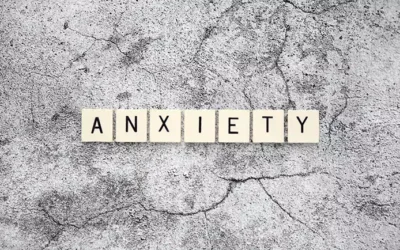Emotional stress is something many people live with every day, often without fully realizing how deeply it affects their lives. It doesn’t always show up as a dramatic breakdown or overwhelming anxiety. In many cases, emotional stress works quietly—shaping your mood, energy levels, sleep, relationships, and even your physical health.
Understanding emotional stress is the first step toward regaining balance and emotional well-being.
What Is Emotional Stress?
Emotional stress is the body and mind’s response to ongoing emotional pressure. This pressure may come from caregiving responsibilities, health concerns, financial worries, work demands, or unresolved emotional experiences.
Unlike short-term stress, emotional stress tends to linger. It builds slowly and can become part of daily life without being noticed.
Common sources include:
Long-term caregiving responsibilities
Living with a chronic illness
Emotional overload or unresolved grief
Ongoing worry or uncertainty
Feeling responsible for others’ well-being
How Emotional Stress Shows Up in Daily Life
Emotional stress does not affect everyone in the same way, but there are common patterns many people experience.
Emotional Signs
Irritability or mood swings
Feeling overwhelmed by small tasks
Emotional numbness or detachment
Persistent worry or fear
Loss of motivation or joy
Mental Signs
Difficulty concentrating
Racing thoughts
Forgetfulness
Feeling mentally exhausted
Physical Signs
Fatigue, even after rest
Headaches or muscle tension
Changes in appetite
Trouble sleeping
Lower immune resistance
Emotional stress often connects emotional, mental, and physical experiences into one continuous cycle.
The Connection Between Emotional Stress and Physical Health
When emotional stress becomes chronic, the body remains in a constant state of alert. This can affect hormone balance, inflammation levels, and overall immune function.
Over time, unmanaged emotional stress may contribute to:
Increased blood pressure
Digestive discomfort
Sleep disorders
Weakened immune response
Worsening symptoms of chronic illness
This connection highlights why emotional well-being is not optional—it is essential.
Emotional Stress and Caregiving Responsibilities
Caregivers are especially vulnerable to emotional stress. Supporting a loved one emotionally and physically can quietly drain personal reserves.
Many caregivers experience:
Guilt when resting
Fear of making mistakes
Emotional exhaustion
A sense of isolation
Ignoring emotional stress in caregiving can lead to burnout, making it harder to care for others and yourself.
Simple Ways to Reduce Emotional Stress
Managing emotional stress does not require drastic changes. Small, consistent actions can create meaningful improvement.
1. Acknowledge What You’re Feeling
Naming your emotions helps reduce their intensity. Stress grows when emotions are ignored.
2. Create Emotional Breathing Space
Short breathing exercises—even five minutes—can calm the nervous system.
3. Set Gentle Boundaries
You can care deeply without giving everything away. Boundaries protect emotional energy.
4. Rest Without Guilt
Rest is not weakness. It is a necessary part of emotional resilience.
5. Write or Reflect Daily
Journaling helps process emotions and reduce mental overload.
When Emotional Stress Should Not Be Ignored
If emotional stress begins to interfere with daily functioning, sleep, or emotional stability, it may be time to seek professional support.
Signs include:
Persistent sadness or anxiety
Feeling emotionally disconnected
Difficulty managing daily tasks
Emotional exhaustion that does not improve
Seeking help is a sign of strength, not failure.
Moving Toward Emotional Balance
Emotional stress is not something to “push through.” It is something to understand, manage, and gently release over time.
By becoming aware of emotional stress and making small adjustments, it is possible to regain clarity, calm, and emotional balance—one step at a time.









0 Comments